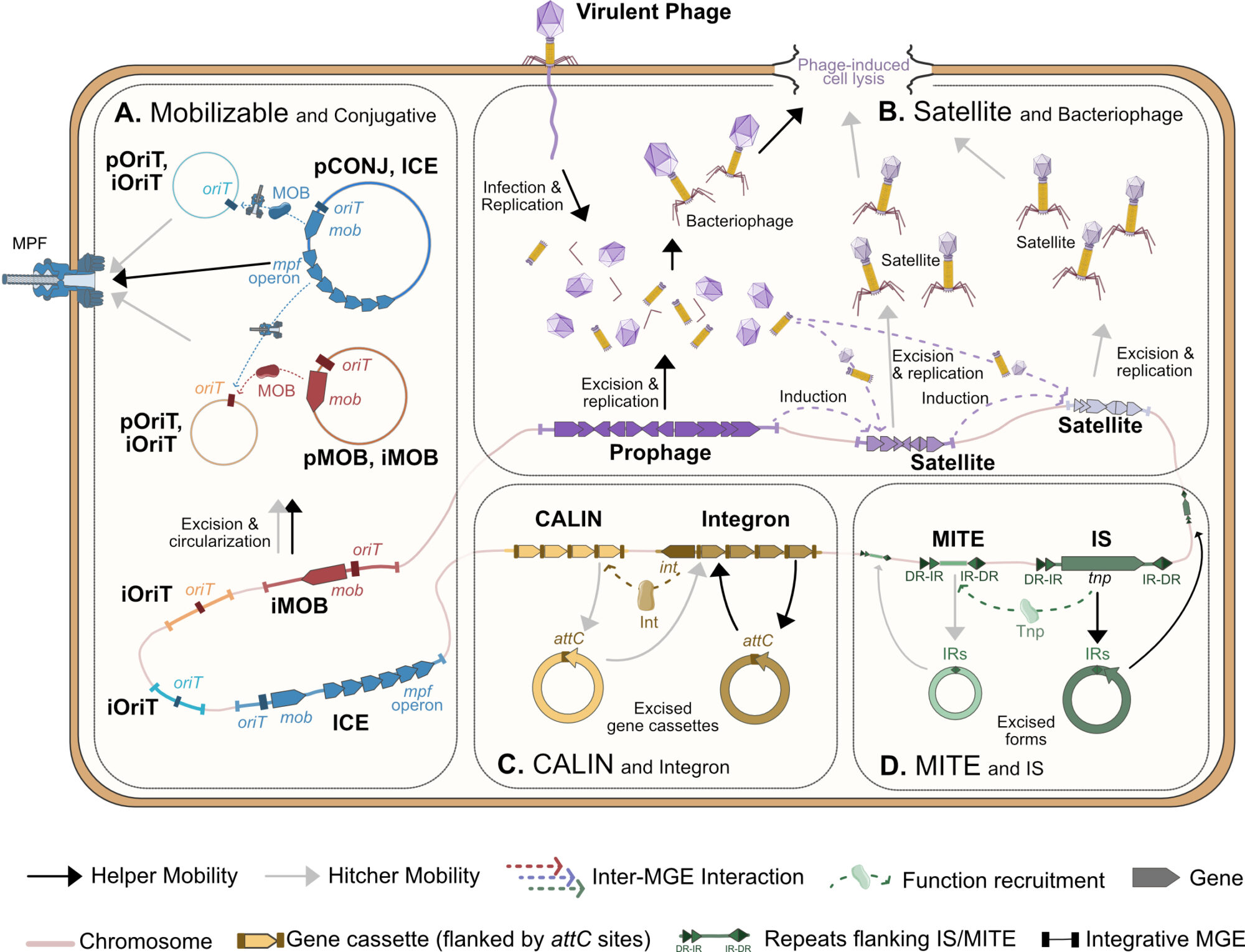
Mobile genetic elements shape microbial gene repertoires and populations. Recent results reveal that many, possibly most, microbial mobile genetic elements require helpers to trans- fer between genomes, which we refer to as Hitcher Genetic Elements (hitchers or HGEs). They may be a large fraction of pathogenicity and resistance genomic islands, whose mech- anisms of transfer have remained enigmatic for decades. Together with their helper ele- ments and their bacterial hosts, hitchers form tripartite networks of interactions that evolve rapidly within a parasitism–mutualism continuum. In this emerging view of microbial genomes as communities of mobile genetic elements many questions arise. Which ele- ments are being moved, by whom, and how? How often are hitchers costly hyper-parasites or beneficial mutualists? What is the evolutionary origin of hitchers? Are there key advan- tages associated with hitchers’ lifestyle that justify their unexpected abundance? And why are hitchers systematically smaller than their helpers? In this essay, we start answering these questions and point ways ahead for understanding the principles, origin, mechanisms, and impact of hitchers in bacterial ecology and evolution.
To find out more, please read the full story recently published in PLoS Biology




